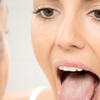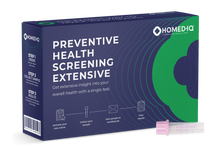Anal-oral sex (rimming): can you get an STI?
Rimming, also known as anal-oral stimulation, can be an exciting act of intimacy. However, as with many sexual practices, the question arises: Is there a risk of sexually transmitted infections (STIs)? In short: yes, there is a certain risk. STIs such as chlamydia, gonorrhea, or herpes can be transmitted. This blog explains how these infections can be spread and what protective measures exist so that you can enjoy intimacy safely.
Table of Contents
- What is rimming?
- Can you contract an STI from rimming?
- Which STIs can be transmitted through rimming?
- Factors that increase the risk of infections during rimming
- How can I protect myself from STIs during rimming?
- Summary
What is rimming?
Rimming, also called anal-oral stimulation, refers to licking, kissing, or sucking another person’s anus. This sexual practice is often used as part of foreplay and can be performed by people regardless of gender or sexual orientation. It requires mutual trust and a high level of hygiene (Lawrenz, 2022).
Can you contract an STI from rimming?
Yes, there is a risk of contracting a sexually transmitted infection (STI) through rimming. Transmission can occur through direct contact with infected anal secretions, mucous membranes, or feces (stool). Both partners are at risk: people performing rimming may ingest viruses, bacteria, or parasites from anal secretions or feces, while infections such as herpes, chlamydia, or syphilis can also be transmitted from an infected oral or throat mucosa to the anal area. Proper hygiene and suitable protection are essential to reduce the risk.
Which STIs can be transmitted through rimming?
Rimming can increase the risk of various sexually transmitted infections (STIs), even when no symptoms are present. The transmission routes vary depending on the pathogen.
Herpes
The herpes simplex virus (HSV) is transmitted through direct contact with infected mucous membranes or tiny injuries in the anal or oral area and remains contagious even without visible blisters. HSV-1, which primarily causes oral herpes, can be transmitted from the mouth to the anal area during rimming. HSV-2, more common in the genital area, can also be transmitted through anal-oral contact, especially when active blisters or lesions are present in the mouth or anal region (WHO, 2024).
Chlamydia and gonorrhea
Chlamydia and gonorrhea can be transmitted through contact with infected mucous membranes or secretions, even in the absence of symptoms. During rimming, there is a low but present risk, as bacteria can be transmitted from the rectum to the mouth or throat and vice versa. Injuries or damage to the skin and mucous membranes further increase the risk. Overall, transmission through anal-oral contact is less common than through vaginal or anal intercourse, but cannot be ruled out (NHS, 2024; WHO, 2024).
Syphilis
Syphilis is caused by the bacterium Treponema pallidum and is usually transmitted only in the presence of syphilitic lesions (chancres). These sores, which may be located on the anus or in the rectum, are highly contagious. The risk of transmission increases if there are additional mucosal injuries or damage. Although the risk is lower with anal-oral contact than with other sexual practices, it remains relevant when lesions are present (CDC, 2022).
Human papillomavirus (HPV)
HPV can be transmitted through direct skin or mucosal contact during rimming. Certain types cause warts in the anal or oral area, while others are linked to anal or throat cancer. Since HPV often has no symptoms, the infection often goes unnoticed. Vaccination can reduce the risk of serious illnesses (CDC, 2024).
Hepatitis B
Hepatitis B is caused by the hepatitis B virus (HBV) and can be transmitted during rimming, particularly through contact with infected stool or blood, such as in cases of rectal bleeding. Even tiny skin or mucosal injuries are sufficient for the virus to be transmitted. Due to its high infectivity, a small amount of infectious material is enough for transmission. Vaccination offers effective protection and is especially recommended for individuals at increased risk, such as sexually active people with frequently changing partners or men who have sex with men (Mayo Clinic, 2024).
Factors that increase the risk of infections during rimming
The risk of STIs depends on several factors that affect the likelihood of bacteria or virus transmission.
- Hygiene: Poor cleanliness increases the likelihood of transmitting pathogens such as bacteria and viruses.
- STI status: Pre-existing sexually transmitted infections like herpes, syphilis, or HIV increase the risk of acquiring or transmitting other infections.
- Wounds/injuries: Open areas or tears in the mouth, anus, or mucous membranes facilitate the entry of pathogens.
- Immune weakness: A weakened immune system makes the body more susceptible to infections.
-
Fecal contact: Direct contact with the feces of an infected partner increases the risk of STIs such as hepatitis B, as infectious agents can be present in excretions.
Source: Lawrenz, 2022
How can I protect myself from STIs during rimming?
- Use of protective barriers: Dental dams (oral protection sheets) provide an effective barrier between the mouth and anus to avoid direct contact with mucous membranes, anal secretions, or potentially infectious agents.
- Thorough hygiene: Thorough cleaning of the anal area before the act reduces the microbial load. Oral hygiene, such as rinsing with mouthwash after contact, can also help minimize the number of pathogens in the mouth.
- Regular STI testing: Especially before entering a new relationship, after unprotected sexual contact, or when infection status is unclear, it is advisable to get tested for STIs, as many are asymptomatic and can go undetected.
- Abstain in case of infections or symptoms: If visible symptoms like redness, blisters, pain, or suspected infection are present, sexual contact should be avoided to prevent transmission.
-
Communication and trust: Open conversations about sexual health, test results, and protective measures build trust and promote responsible interaction.
Source: NHS, 2024
Want to get tested?
In Germany, STI testing is available at public health offices, through general practitioners, or with at-home test kits. Homed-IQ offers 100% discreet at-home STI tests, as for example the Chlamydia and Gonorrhoea Test, that allow simple, private, and secure testing. All results are evaluated in ISO-certified laboratories that are also used by clinics and medical practices.
Is rimming safe without symptoms?
Rimming carries a risk of infection even without visible symptoms such as blisters, redness, or sores. Many sexually transmitted infections (e.g., herpes, gonorrhea) can persist in asymptomatic stages, during which the infected person has no symptoms. Even without symptoms, viruses or bacteria can be transmitted through mucosal contact or microscopic lesions.
Is rimming risk-free in a monogamous relationship?
Rimming in a monogamous relationship carries a lower risk but is not entirely risk-free. Regular STI testing is especially important—particularly before starting a new relationship—to detect possible infections early. Annual check-ups are also advisable as a preventive measure, since asymptomatic infections such as chlamydia often go unnoticed (Cleveland Clinic, 2023).
Can HIV be transmitted through rimming?
HIV transmission through rimming is extremely unlikely, as HIV is primarily transmitted through blood, semen, vaginal fluid, and breast milk—not through saliva or feces. A minimal risk may exist if open wounds or blood contact are involved. Other STIs such as syphilis or herpes pose a greater risk during rimming (WHO, 2024).
Summary
Rimming, also known as anal-oral stimulation, carries a certain risk of transmitting sexually transmitted infections (STIs), even without visible symptoms. STIs such as herpes, chlamydia, gonorrhea, and syphilis can be transmitted through direct contact with infected anal secretions, mucous membranes, or feces. The risk increases with factors such as poor hygiene, pre-existing infections, or skin injuries. Protective measures such as the use of dental dams, thorough hygiene, and regular STI testing can help reduce the risk.









